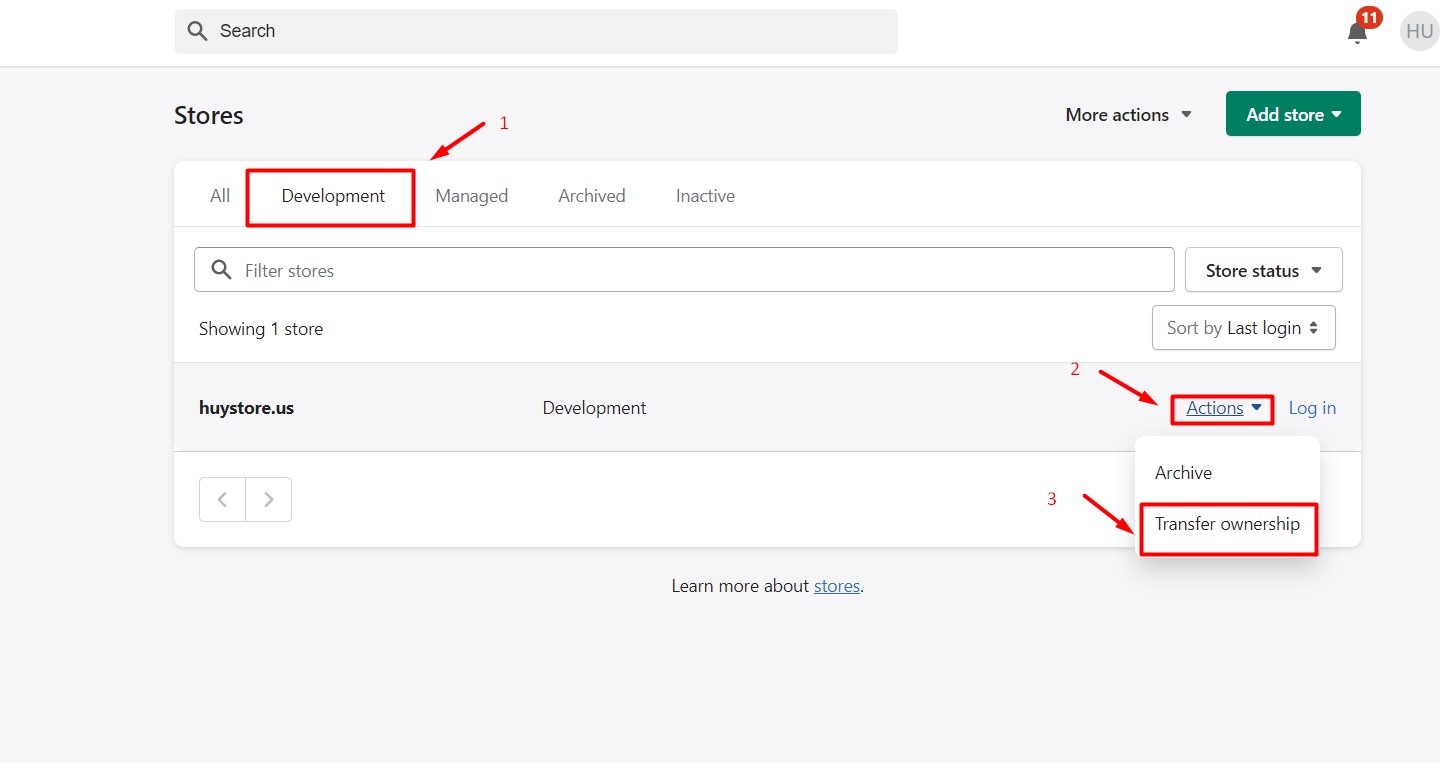Understanding The Shift To A Lifetime Revenue Share For Shopify Developers

Table of Contents
What is a Lifetime Revenue Share Model?
A lifetime revenue share (LRS) model, in the context of Shopify app development, means you receive a percentage of your app's recurring revenue for as long as the merchant uses it. This differs significantly from traditional models like one-time purchases, subscriptions with limited durations, or per-transaction fees. Instead of earning a set amount upfront or recurring payments tied to specific app usage, you receive a continuous stream of income tied to the ongoing success of your app and its continued use by merchants.
- Consistent income stream: Regardless of fluctuations in app usage, you receive a portion of the revenue generated.
- Incentivizes long-term development: LRS encourages you to continually improve and maintain your app, leading to higher customer retention and therefore, higher income for both you and your clients.
- Higher initial payout potential, but variable overall earnings: While you might receive a lower initial payment compared to other models, the long-term potential for earnings can be significantly higher, though subject to app performance and market factors.
Advantages of a Lifetime Revenue Share for Shopify Developers
Increased Long-Term Stability and Predictability
A predictable income stream offers significant financial benefits. Instead of relying on sporadic payments or fluctuating revenue, LRS provides a consistent income source, allowing for better financial planning and reduced stress.
- Improved cash flow planning: You can accurately forecast your income, enabling better budgeting and investment decisions.
- Reduced financial stress: The steady income stream mitigates the risk associated with income fluctuations inherent in other models.
- Allows for investment in app improvement and expansion: Consistent revenue allows you to reinvest in your app, adding new features, improving performance, and expanding its functionality, leading to even greater long-term success.
Stronger Developer-Merchant Relationships
LRS fosters a collaborative relationship built on shared success. Both the developer and the merchant benefit from the app's continued success, leading to stronger loyalty, increased trust, and greater potential for long-term partnerships.
- Increased customer retention for developers: Merchants are more likely to remain loyal to an app that contributes directly to their own success.
- Enhanced trust and transparency: The shared revenue model promotes transparency and fosters a strong sense of partnership.
- Potential for long-term partnerships: A successful LRS model leads to repeat business and the potential for developing multiple applications with satisfied clients.
Disadvantages of a Lifetime Revenue Share for Shopify Developers
Potential for Lower Overall Earnings
While LRS offers long-term stability, there's a risk that overall earnings might be lower than other models, particularly if the app doesn't achieve significant market penetration or if the revenue share percentage is too low.
- Risk assessment and mitigation strategies: Careful market research, accurate app valuation, and a well-defined business plan are essential to mitigate this risk.
- Importance of forecasting app usage and growth: Accurately forecasting the app's growth trajectory is crucial for determining the potential profitability of an LRS agreement.
- Negotiating favorable revenue share percentages: Strong negotiation skills are vital to secure a fair revenue share that reflects the value of your app and your expertise.
Upfront Investment and Development Time
Developing a successful app that generates substantial recurring revenue requires significant upfront investment and a considerable time commitment.
- Planning and resource allocation: Thorough planning and allocation of resources are crucial for a successful launch and ongoing maintenance.
- Marketing and customer acquisition strategies: A robust marketing strategy is essential to attract and retain merchants.
- Managing app updates and maintenance: Ongoing maintenance and updates are crucial for customer satisfaction and sustained revenue generation.
Negotiating a Lifetime Revenue Share Agreement
Negotiating a lifetime revenue share deal requires careful consideration and attention to detail. It's highly recommended to seek legal counsel to protect your interests.
- Defining clear terms and conditions: A comprehensive contract outlines all aspects of the agreement, preventing future disputes.
- Setting realistic revenue share percentages: Negotiate a percentage that fairly reflects the value of your app and your contribution to the merchant's success.
- Ensuring intellectual property protection: Clearly define ownership rights and intellectual property protection to safeguard your investment.
Conclusion
A lifetime revenue share model for Shopify developers presents both significant advantages and potential drawbacks. While offering increased long-term stability and stronger developer-merchant relationships, it also requires a substantial upfront investment and carries the risk of lower overall earnings if the app doesn't perform as expected. Careful planning, thorough negotiation, and a comprehensive understanding of the market are essential for success. Are you ready to explore the potential of a lifetime revenue share and build a sustainable future as a Shopify developer? Learn more about strategic planning and negotiation for securing favorable lifetime revenue share agreements. Consider the long-term implications of a lifetime revenue share for Shopify developers and make informed decisions for your business success.

Featured Posts
-
 Afghan Migrant Arrested For Alleged Death Threat Against Nigel Farage In Uk
May 04, 2025
Afghan Migrant Arrested For Alleged Death Threat Against Nigel Farage In Uk
May 04, 2025 -
 Meet Bianca Censoris Sister Angelina Photos And Details
May 04, 2025
Meet Bianca Censoris Sister Angelina Photos And Details
May 04, 2025 -
 Gigi Hadid Navigates Dating Amidst Bradley Cooper And Leonardo Di Caprio
May 04, 2025
Gigi Hadid Navigates Dating Amidst Bradley Cooper And Leonardo Di Caprio
May 04, 2025 -
 Marina Rodriguez Vs Gillian Robertson A Comprehensive Ufc Iowa Fight Prediction
May 04, 2025
Marina Rodriguez Vs Gillian Robertson A Comprehensive Ufc Iowa Fight Prediction
May 04, 2025 -
 Sydney Sweeneys Post Breakup Appearance A Look At Her Recent Public Outing
May 04, 2025
Sydney Sweeneys Post Breakup Appearance A Look At Her Recent Public Outing
May 04, 2025
